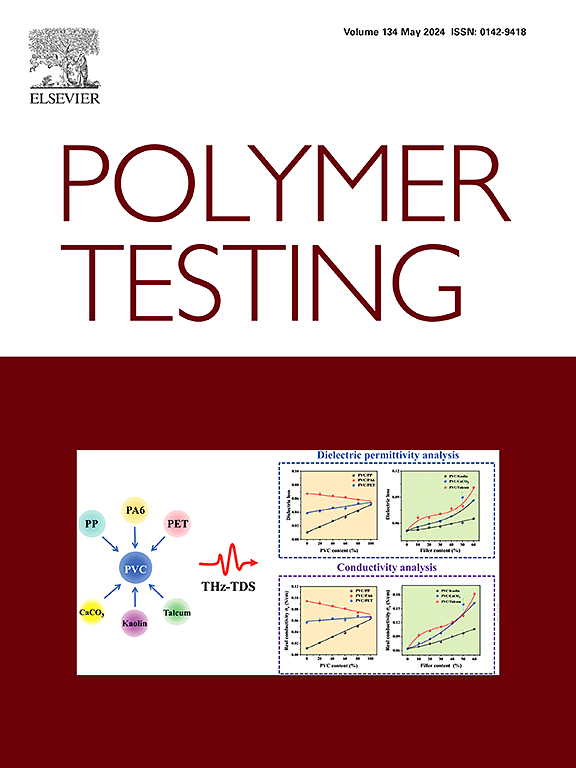用于聚乳酸(PLA)的生物基增塑剂的最新进展:综述
IF 6
2区 材料科学
Q1 MATERIALS SCIENCE, CHARACTERIZATION & TESTING
引用次数: 0
摘要
聚乳酸(PLA)是一种环保和可生物降解的聚酯,由于人们对可持续材料的日益关注,有关聚乳酸生物基增塑剂的研究也取得了进展。聚乳酸的脆性给薄膜生产带来了挑战,促使研究人员将其与植物油和柠檬酸盐等天然增塑剂混合,以提高柔韧性和加工便利性,同时保持生物降解性和安全性。本综述总结了过去五年中有关用于聚乳酸的生物基增塑剂的最新研究成果,强调了这些增塑剂对聚乳酸物理性质的影响。尽管生物基增塑剂的成本较高,但由于其具有环境效益,预计其市场将不断扩大。面临的主要挑战包括开发性能卓越的生物基增塑剂、扩大可用原料的选择范围以及进行经济评估以提高竞争力。未来,研究重点将放在增塑剂的配制上,这些增塑剂将提供更多优势,如增强韧性、抗菌功能和减少迁移,以符合行业对可持续发展的日益重视。本文章由计算机程序翻译,如有差异,请以英文原文为准。
Recent advancements in bio-based plasticizers for polylactic acid (PLA): A review
Research on bio-based plasticizers for polylactic acid (PLA), an environmentally friendly and biodegradable polyester, has advanced due to the increasing focus on sustainable materials. The brittleness of PLA has presented challenges in film production, prompting researchers to blend it with natural plasticizers such as vegetable oils and citrate to enhance flexibility and processing ease while maintaining biodegradability and safety. This review summarizes recent findings from the past five years on bio-based plasticizers for PLA, highlighting their impact on the physical properties of PLA. Despite the high cost associated with bio-based plasticizers, their market is anticipated to expand owing to the environmental benefits they provide. Primary challenges involve the advancement of bio-based plasticizers with superior performance, broadening the range of available feedstock choices, and performing economic evaluations to enhance competitiveness. In the future, research will focus on formulating plasticizers that offer added advantages such as enhanced toughness, antimicrobial features, and reduced migration, in line with the industry's growing emphasis on sustainability.
求助全文
通过发布文献求助,成功后即可免费获取论文全文。
去求助
来源期刊

Polymer Testing
工程技术-材料科学:表征与测试
CiteScore
10.70
自引率
5.90%
发文量
328
审稿时长
44 days
期刊介绍:
Polymer Testing focuses on the testing, analysis and characterization of polymer materials, including both synthetic and natural or biobased polymers. Novel testing methods and the testing of novel polymeric materials in bulk, solution and dispersion is covered. In addition, we welcome the submission of the testing of polymeric materials for a wide range of applications and industrial products as well as nanoscale characterization.
The scope includes but is not limited to the following main topics:
Novel testing methods and Chemical analysis
• mechanical, thermal, electrical, chemical, imaging, spectroscopy, scattering and rheology
Physical properties and behaviour of novel polymer systems
• nanoscale properties, morphology, transport properties
Degradation and recycling of polymeric materials when combined with novel testing or characterization methods
• degradation, biodegradation, ageing and fire retardancy
Modelling and Simulation work will be only considered when it is linked to new or previously published experimental results.
 求助内容:
求助内容: 应助结果提醒方式:
应助结果提醒方式:


